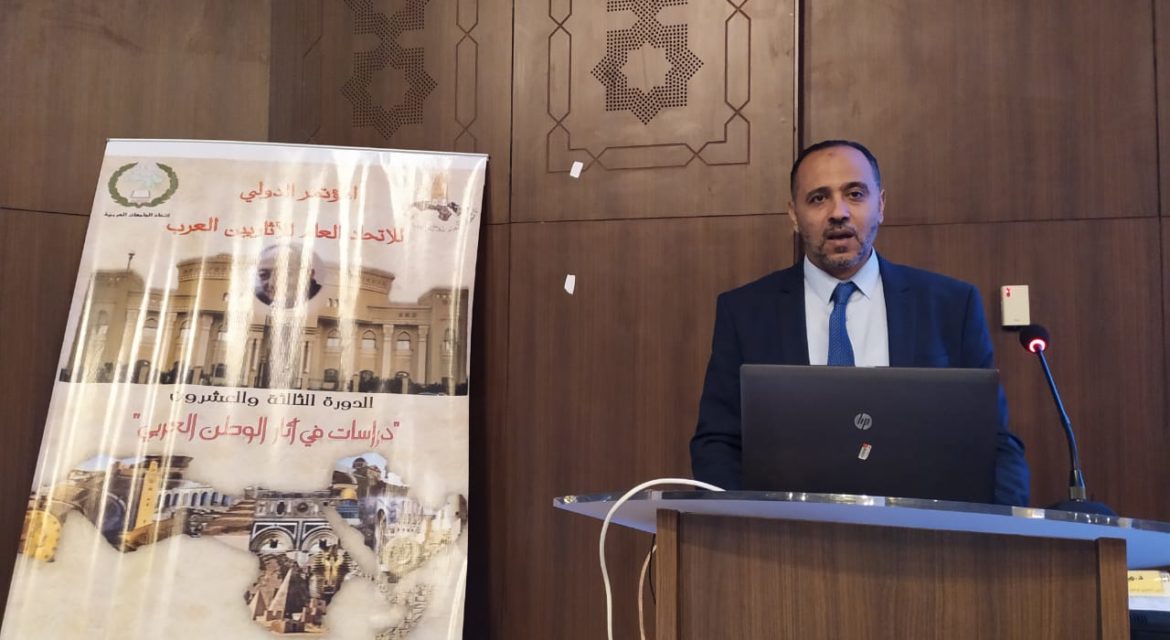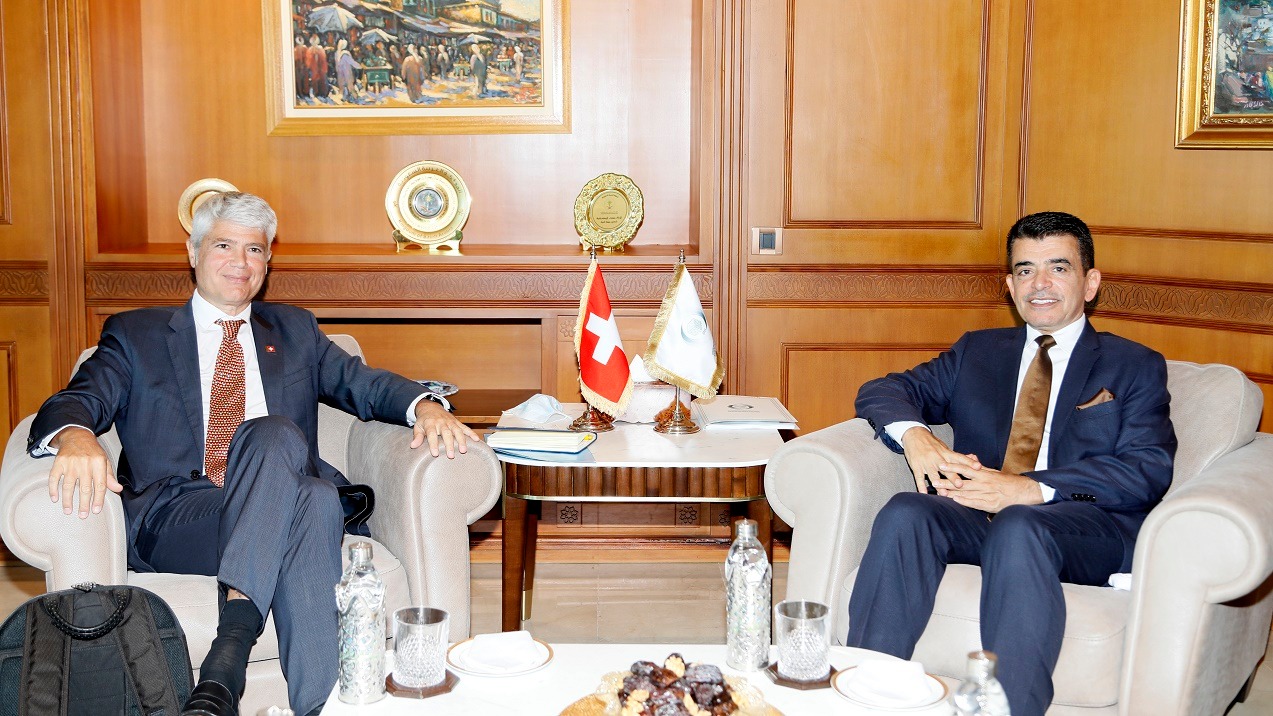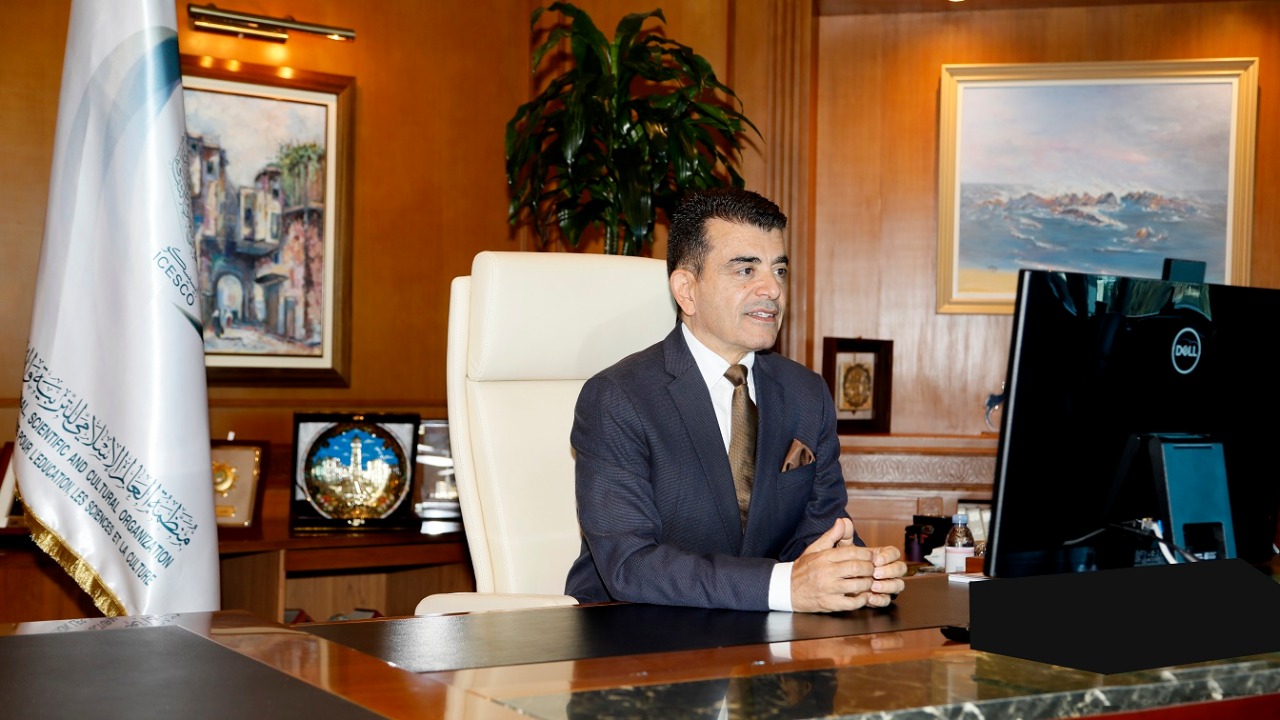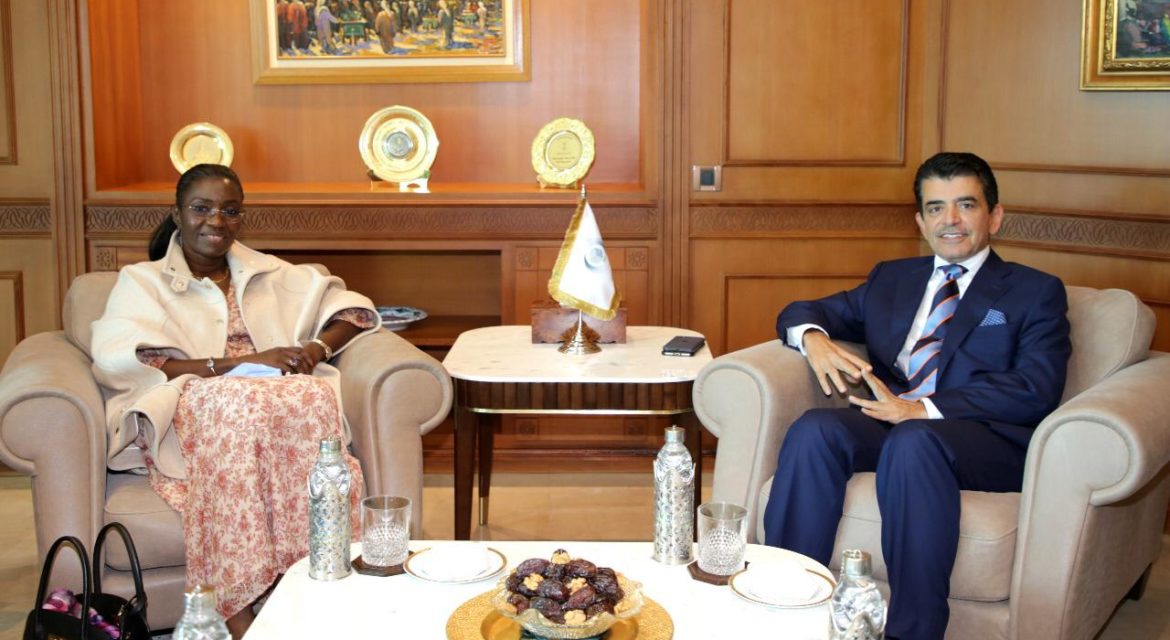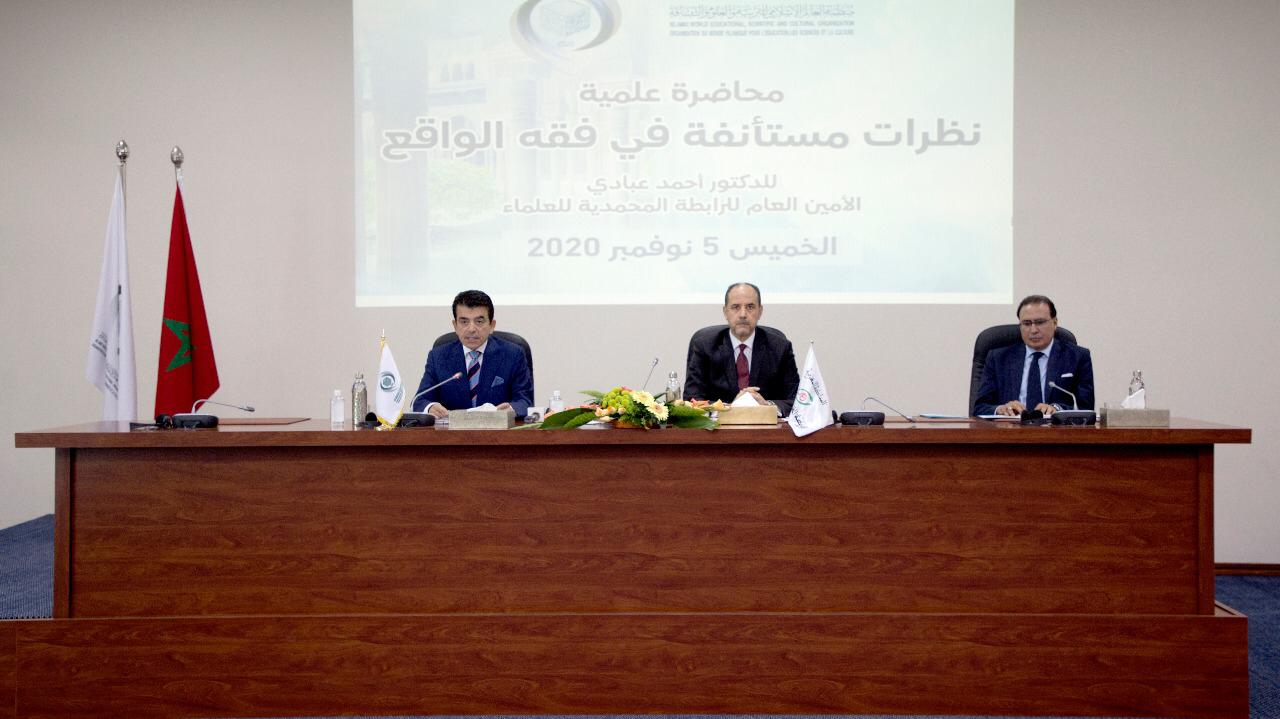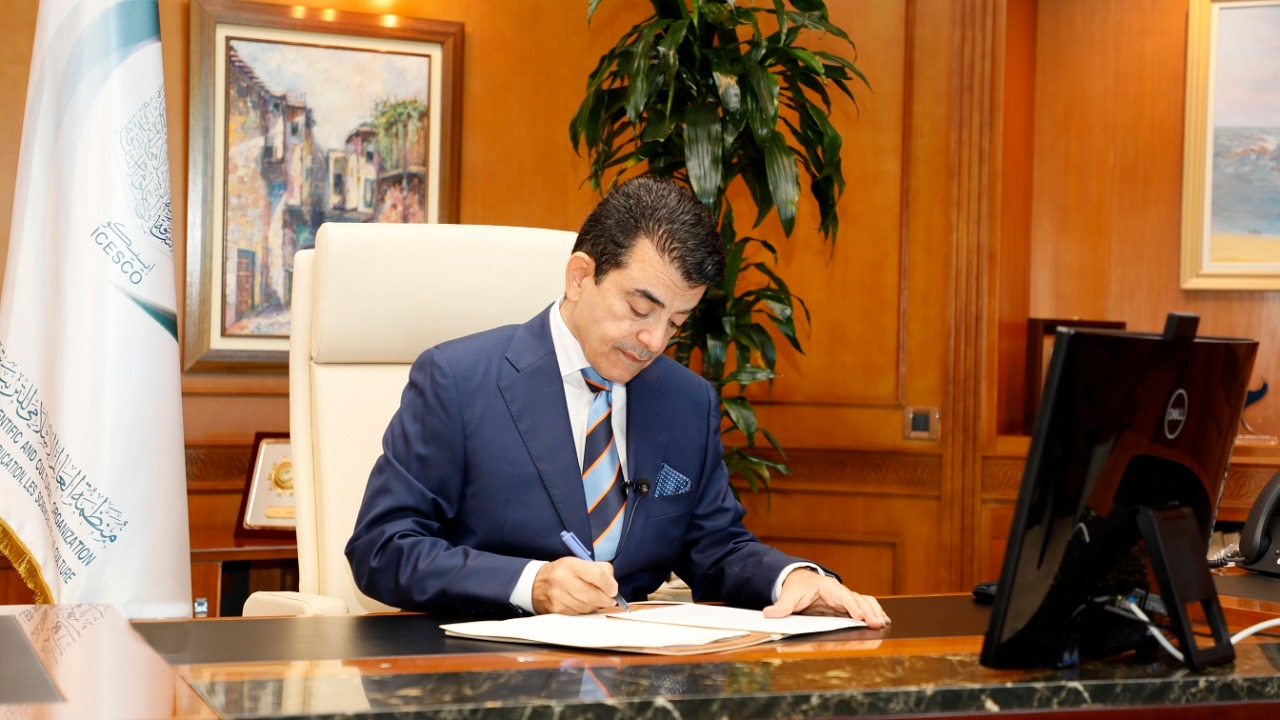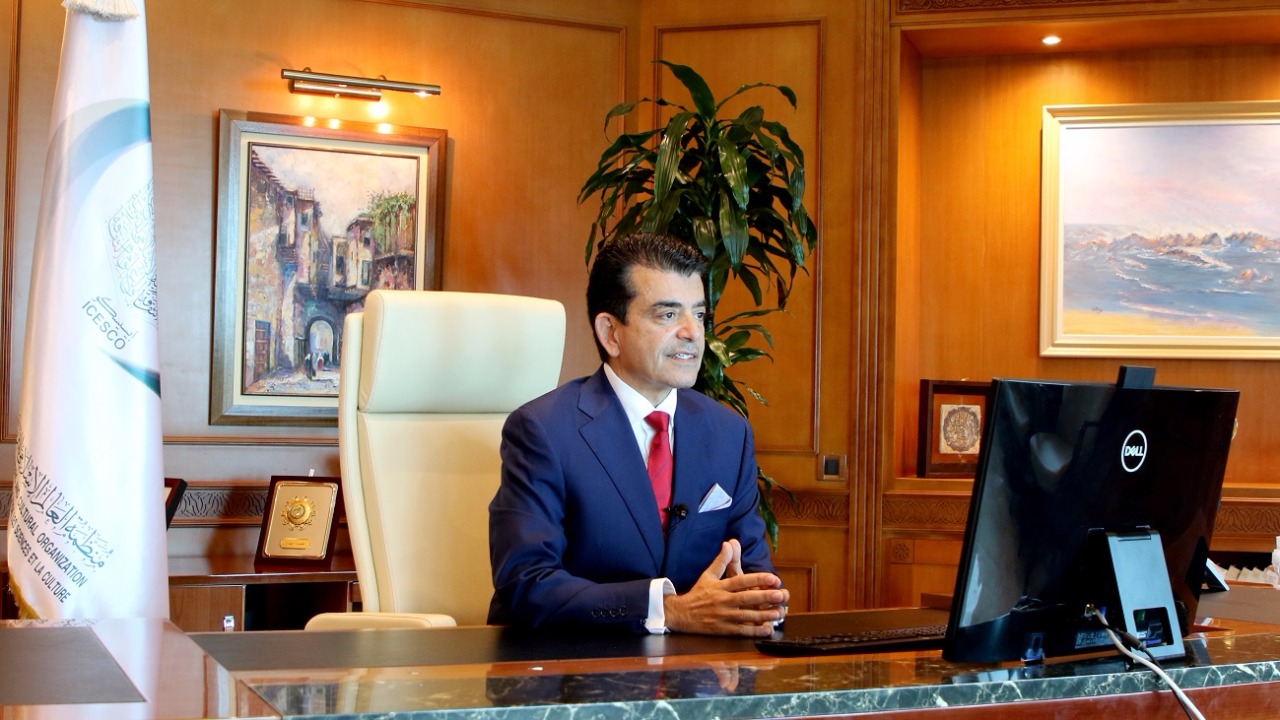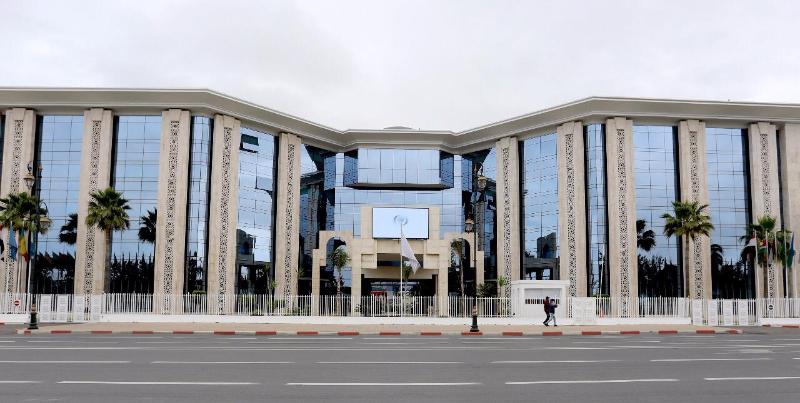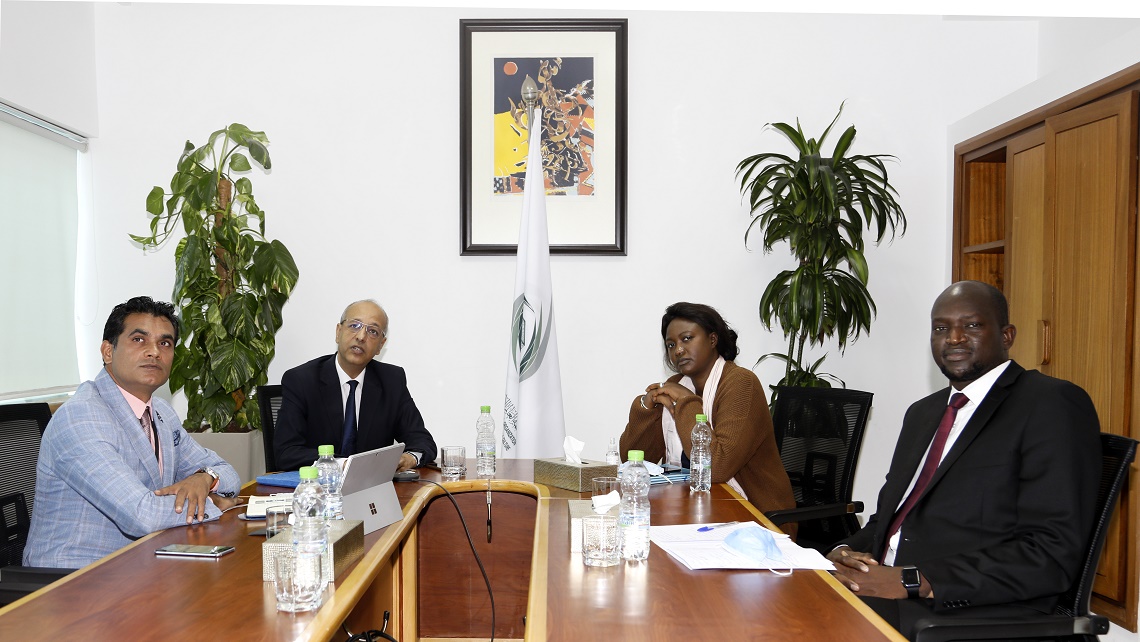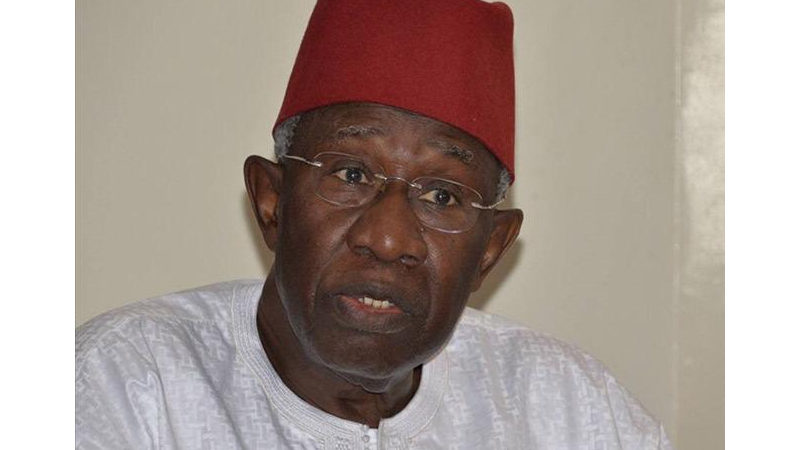The Islamic World Organization for Education, Science, and Culture (ICESCO) took part in the 23rd International Conference of the General Union of Arab Archaeologists. The Union Conference was held on November 7 and 8 at its headquarters in Cairo, Egypt. More than 50 researchers from the Arab world, specialized in the various fields of heritage and antiquities participated in the conference.
Mr. Osama Elnahas, Heritage Expert at ICESCO, represented the Organization at the Conference. He conveyed, during his speech at the opening session, the greetings of H.E. Dr. Salim M. AlMalik, ICESCO’s Director-General (DG), and Mr. Mohamed Zine El Abidine, Director of Culture and Communication, to the President of the Union, Dr. Mohamed Kahlaoui, as well as to all the participants in the Conference.
He welcomed the holding of this face-to-face event, considering the exceptional circumstances facing the world due to the COVID-19 pandemic.
Mr. Elnahas reviewed ICESCO’s efforts in terms of heritage protection in the Islamic World. The Organization established the Heritage Center in the Islamic World, as a model of heritage management in the region.
The Center comprises units and departments, in particular the Artificial Intelligence Unit, that aim to maximize the use of new technologies in the field. The Center also put together a special unit for legal assistance to Member and non-Member States to restitute their plundered heritage.
The Expert added that ICESCO allocated one million dollars to restore the items of 30 museums affected by crises and disasters in the Organization’s Member States. The Organization also allocated 100,000 dollars to contribute to the restoration of heritage sites and museums in Lebanon and Sudan due to the explosion in the port of Beirut and flooding in Sudan.
At the end of his speech, Mr. Elnahas called on international organizations and the Union to cooperate and intensify their efforts to protect human heritage and preserve it for future generations.

